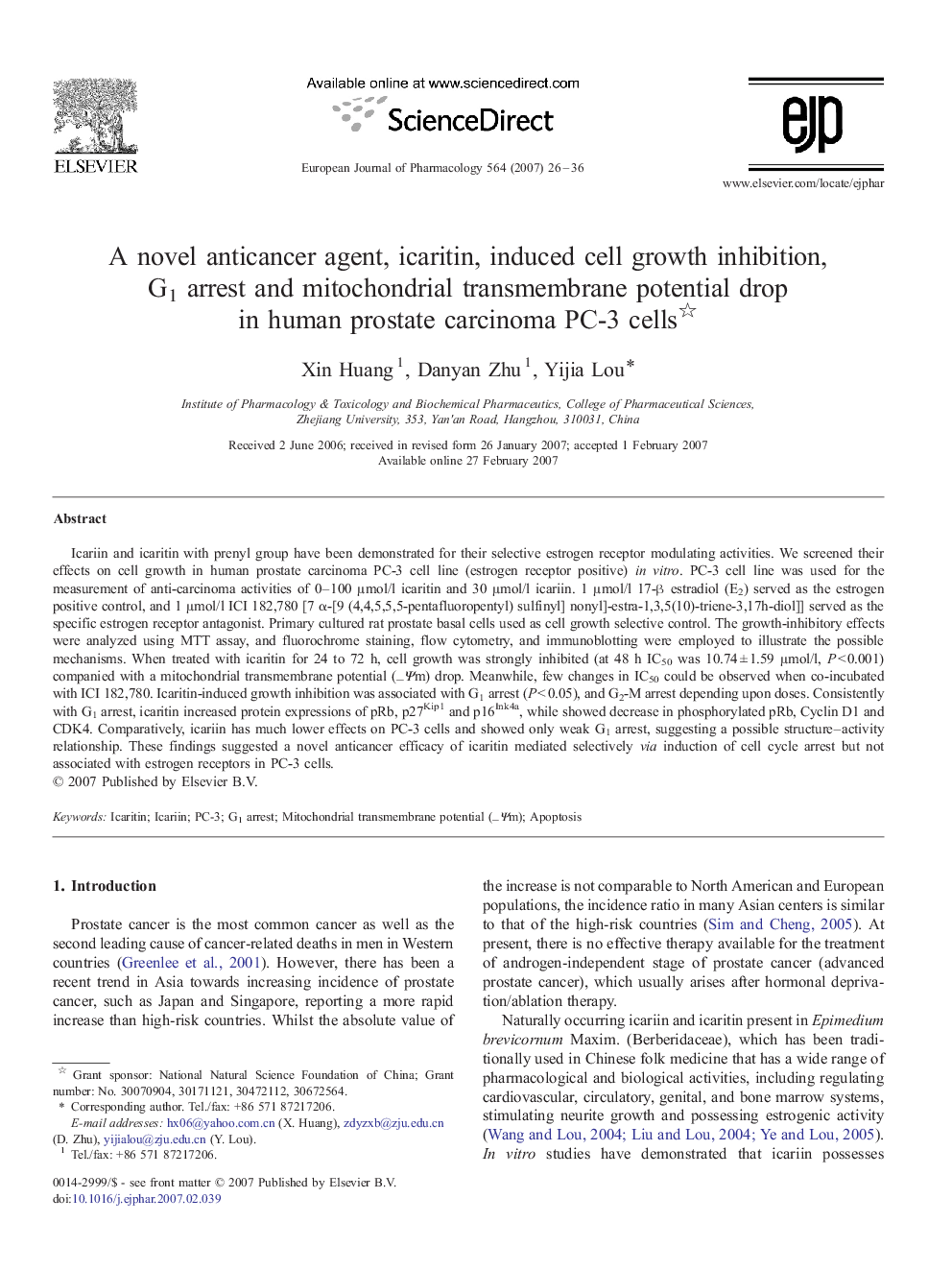| Article ID | Journal | Published Year | Pages | File Type |
|---|---|---|---|---|
| 2536140 | European Journal of Pharmacology | 2007 | 11 Pages |
Icariin and icaritin with prenyl group have been demonstrated for their selective estrogen receptor modulating activities. We screened their effects on cell growth in human prostate carcinoma PC-3 cell line (estrogen receptor positive) in vitro. PC-3 cell line was used for the measurement of anti-carcinoma activities of 0–100 μmol/l icaritin and 30 μmol/l icariin. 1 μmol/l 17-β estradiol (E2) served as the estrogen positive control, and 1 μmol/l ICI 182,780 [7 α-[9 (4,4,5,5,5-pentafluoropentyl) sulfinyl] nonyl]-estra-1,3,5(10)-triene-3,17h-diol]] served as the specific estrogen receptor antagonist. Primary cultured rat prostate basal cells used as cell growth selective control. The growth-inhibitory effects were analyzed using MTT assay, and fluorochrome staining, flow cytometry, and immunoblotting were employed to illustrate the possible mechanisms. When treated with icaritin for 24 to 72 h, cell growth was strongly inhibited (at 48 h IC50 was 10.74 ± 1.59 μmol/l, P < 0.001) companied with a mitochondrial transmembrane potential (_Ψm) drop. Meanwhile, few changes in IC50 could be observed when co-incubated with ICI 182,780. Icaritin-induced growth inhibition was associated with G1 arrest (P < 0.05), and G2-M arrest depending upon doses. Consistently with G1 arrest, icaritin increased protein expressions of pRb, p27Kip1 and p16Ink4a, while showed decrease in phosphorylated pRb, Cyclin D1 and CDK4. Comparatively, icariin has much lower effects on PC-3 cells and showed only weak G1 arrest, suggesting a possible structure–activity relationship. These findings suggested a novel anticancer efficacy of icaritin mediated selectively via induction of cell cycle arrest but not associated with estrogen receptors in PC-3 cells.
